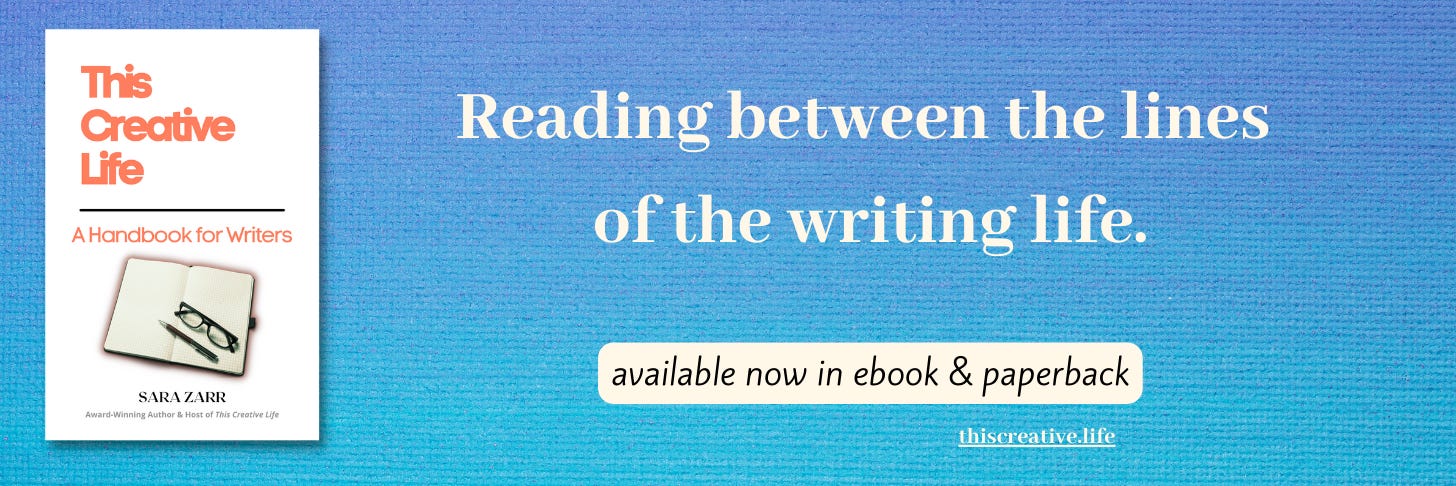Once upon a time in the not so distant past, there was no such thing as a creative writing MFA program. It’s true! The rise of these programs started in the mid-century and grew apace until the 1970s, then really exploded a couple of decades later. So before that, there were no novels.
Just kidding! Of course there were novels. Before MFAs, before the Learning Annex, before virtual classes and newsletters and conferences, there were novels.
How did those woefully uneducated writers who never heard the phrase “show don’t tell” or “rising action” manage to produce all sorts of novels—popular, populist, and “literary”—without ever being in a workshop??
It could only be a miracle.
OR—hear me out—was it through the act of regular reading and writing?
Here it must be said that especially before the 21st century, a big dose of class, race, and gender privilege allowing the time and opportunity for reading and writing was also nearly a requirement. That’s still true to a perhaps more subtle but no less real extent; now it plays out in the MFA world along with in other spaces. Matthew Salesses’ Craft in the Real World, and Eric Bennett’s Workshops of Empire provide more expansive looks at this in the context of the history of the MFA.
In any case, learn by doing is and has always been a legitimate way to become a writer, and for many writers it’s been the only realistic option.
I’m a self-taught writer, though “self-taught” is a bit of a misnomer, because I was always being taught by other writers through their books and, later, through folks in a small, sporadic writing group. I’m not formally educated in writing, though, and never took a creative writing class or did a workshop in an academic setting. My apprenticeship of reading, writing, and revising lasted about ten years and through three unpublished novels.
Some learning happens by osmosis when you read a lot of good books. But to grow as a self-directed writer, you also need intention. That means reading like a writer, specifically noticing how writers do a thing that you’re struggling to execute in your own work.
For example, when writing my first book, I would get stuck at the beginning of every chapter. No matter how many books I’d read in my life up to that point (a lot), I would sit there going, Soooooo, how does one start a chapter?
That’s when I’d get up, go to my bookshelf, and stand there reading only the beginnings of chapters across a bunch of different books. After I read about a hundred beginnings of chapters by all sorts of authors, I started to see the light.
You can do this with any point of craft or technique you’re trying to improve or understand. Dialog, description, action, voice, structure, characterization…on and on.
This approach does not negate the ways that MFA programs, workshops, writing groups and the like can be helpful. Perhaps my learning arc wouldn’t have taken a decade. I’d probably be more widely read across the western canon. I’d certainly have more academic employment options.
But, that’s not how my path unfolded. So if you’re worried that you aren’t following the right steps somehow, or that you:
started too late
haven’t taken the right classes
haven’t taken any classes!
should be getting an MFA
aren’t meeting the right people
can’t afford (in money and/or time) to go to conferences
don’t even have writer friends!
…It’s okay.
If you have the will, the time and ability to read and the tools to write—pen and paper, computer, voice recorder—you can learn and improve. You’ll be in great company.
Nina LaCour’s high anticipated adult novel, Yerba Buena, came out last week. My copy is waiting for me at my local store for pickup, and I’m very excited! I unlocked the podcast episode (26) with Nina from wayyyy back in the 2013 archives to celebrate.
Have you always wanted to get into more short story reading but are tired of the same old recs? Here’s a list of some new collections you might want to check out. Reading short stories always makes me want to write them, but they usually turn into novel-sized ideas.
If there were such a thing as a PBS influencer, it might be me. The American Masters series I constantly reference is rebroadcasting their 2013 look at James Baldwin later this summer. Watch the preview and mark your calendar.
This Creative Life is a book, a newsletter, and a podcast from me, Sara Zarr, about reading between the lines of a writing life. The newsletter and podcast are free; buying the book helps support them and me. You can also make one-time contributions if you like. Check out the options under Support at thiscreative.life. Sharing the newsletter is also a great way to keep it going!





